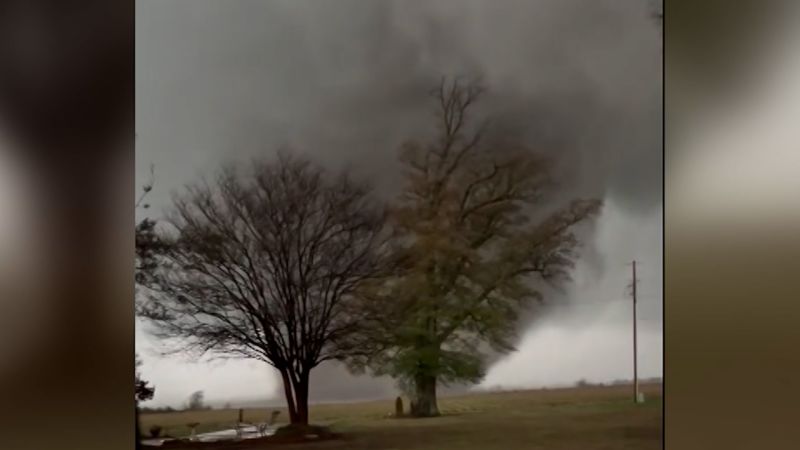
By MELINA WALLING, Associated Press For cattle fattened in fields instead of feedlots, the grass may be greener, but the carbon emissions are not. A study out Monday in the Proceedings of the National Academy of Sciences finds that even in the most optimistic scenarios, grass-fed beef produces no less planet-warming carbon emissions than industrial beef. The finding calls into question the frequent promotion of grass-fed beef as a more environmentally friendly option.
Still, other scientists say grass-fed beef wins out on other factors like animal welfare or local environmental pollution, complicating the choice for conscientious consumers. “I think that there is a large portion of the population who really do wish their purchasing decisions will reflect their values,” said Gidon Eshel, a research professor of environmental physics at Bard College and one of the study’s authors. “But they are being misled, essentially, by the wrong information.

” Related Articles Environment | Regional waste authority finalizing contract with AI-led disposal and recycling provider Environment | Smoke detectors in the sky: Will wildfire affect bird behavior? Environment | Peruvian farmer’s case against German energy giant RWE could reshape global climate accountability Environment | Birding: Government is necessary to protect wildlife Environment | Ducks were once a conservation bright spot. Now they’re declining in the US, new report shows When it comes to food, beef contributes by far the most emissions fueling climate change and is one of the most resource- and land-intensive to produce. Yet demand for beef around the world is only expected to grow .
And carefully weighing the benefits of grass-fed beef matters because in most parts of the world where beef production is expanding, such as South America, it’s being done by deforesting land that would otherwise store carbon, said Richard Waite of the World Resources Institute. Experts say this study’s finding makes sense because it’s less efficient to produce grass-fed cattle than their industrial counterparts. Animals that are fattened up in fields instead of feedlots grow more slowly and don’t get as big, so it takes more of them to produce the same amount of meat.
The researchers used a numerical model of the emissions produced across the process of raising beef, then simulated many herds of industrial and grass-fed cattle. It compared differences in how much food they would eat, how much methane and carbon dioxide they would emit and how much meat they would produce. Those differences mirror real-life scenarios; cattle in arid New Mexico and lush northern Michigan have different inputs and outputs.
Eshel and his team also analyzed previous studies that examined how much cattle grazing promotes carbon storage, but found that even in the best-case scenarios, the amount of carbon that grasses could sequester didn’t make up for the emissions of the cattle. Randy Jackson, a professor of grassland ecology at University of Wisconsin-Madison who was not involved in the study, said he has found similar results in his own research showing that grass-fed beef has higher emissions assuming the same demand. In fact, Eshel’s team cited his work.
But he worries that the study is too focused on minimizing emissions “without concern for the environmental impacts beyond GHG load to the atmosphere,” like biodiversity and soil and water quality, he wrote in an email. The American Grassfed Association, a nonprofit membership group for producers of grass-fed livestock, did not immediately provide a comment on the study. Jennifer Schmitt, who studies the sustainability of U.
S. agricultural supply chains at the University of Minnesota and also wasn’t involved in the study, said she thinks the paper “helps us get a little closer to answering the question of maybe how much beef should we have on the landscape versus plant proteins,” she said. Schmitt said maybe if beef was scaled back on a large enough scale and if farmers could free up more cropland for other foods that humans eat, the localized environmental benefits of grass-fed cattle could make up for the fact that they come with higher emissions.
It would be harder to convince Eshel, however. He thinks climate change is “second to none” when it comes to global problems and should be prioritized as such. “I have a hard time imagining, even, a situation in which it will prove environmentally, genuinely wise, genuinely beneficial, to raise beef,” Eshel said.
For consumers who truly want to be environmentally conscious, he added, “don’t make beef a habit.” Follow Melina Walling on X @MelinaWalling and Bluesky @melinawalling.bsky.
social . The Associated Press’ climate and environmental coverage receives financial support from multiple private foundations. AP is solely responsible for all content.
Find AP’s standards for working with philanthropies, a list of supporters and funded coverage areas at AP.org . Click to share on Facebook (Opens in new window) Click to share on X (Opens in new window) Most Popular Police identify 34-year-old Newport News man killed in motorcycle crash Police identify 34-year-old Newport News man killed in motorcycle crash Allen Iverson-backed apartments planning to return to Newport News; developer to host community meetings Allen Iverson-backed apartments planning to return to Newport News; developer to host community meetings Here’s how Virginia’s senators voted on bill to avoid government shutdown Here’s how Virginia’s senators voted on bill to avoid government shutdown Motorcyclist killed in car crash on Jefferson Avenue in Midtown Newport News Motorcyclist killed in car crash on Jefferson Avenue in Midtown Newport News After wrong-way chase on highway, state police charge 21-year-old who troopers say stole U-Haul After wrong-way chase on highway, state police charge 21-year-old who troopers say stole U-Haul Community pushes for Magruder Elementary School name change Community pushes for Magruder Elementary School name change Williamsburg council approves pre-design phase for busy intersection roundabout near Midtown Row Williamsburg council approves pre-design phase for busy intersection roundabout near Midtown Row Norfolk State men, seeded 16th, draw No.
1 seed Florida in NCAA Tournament opener Norfolk State men, seeded 16th, draw No. 1 seed Florida in NCAA Tournament opener March Madness: Here’s the bracket for the men’s NCAA Tournament March Madness: Here’s the bracket for the men’s NCAA Tournament Hampton police identify man in death investigation; had been reported missing Hampton police identify man in death investigation; had been reported missing.















